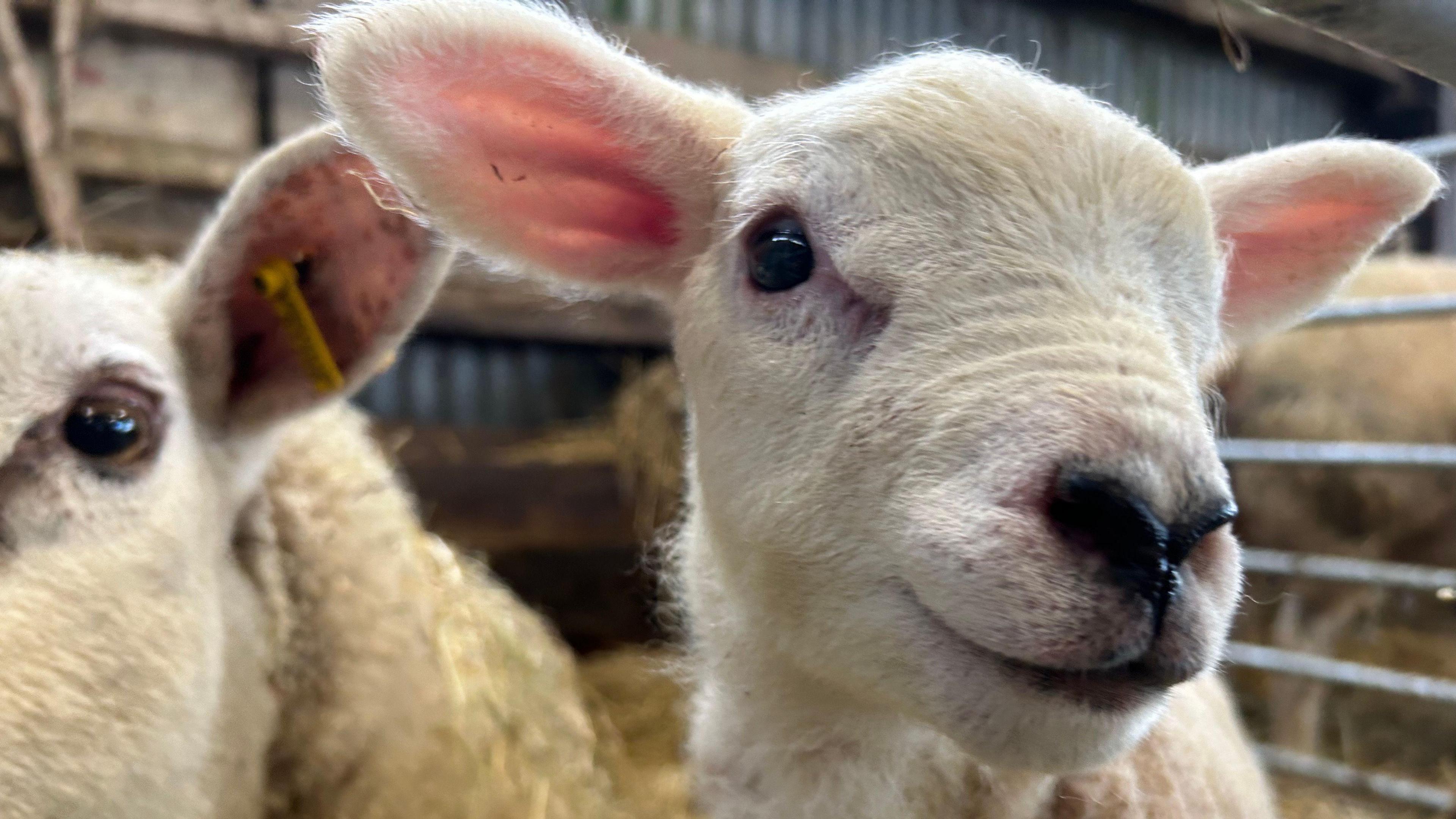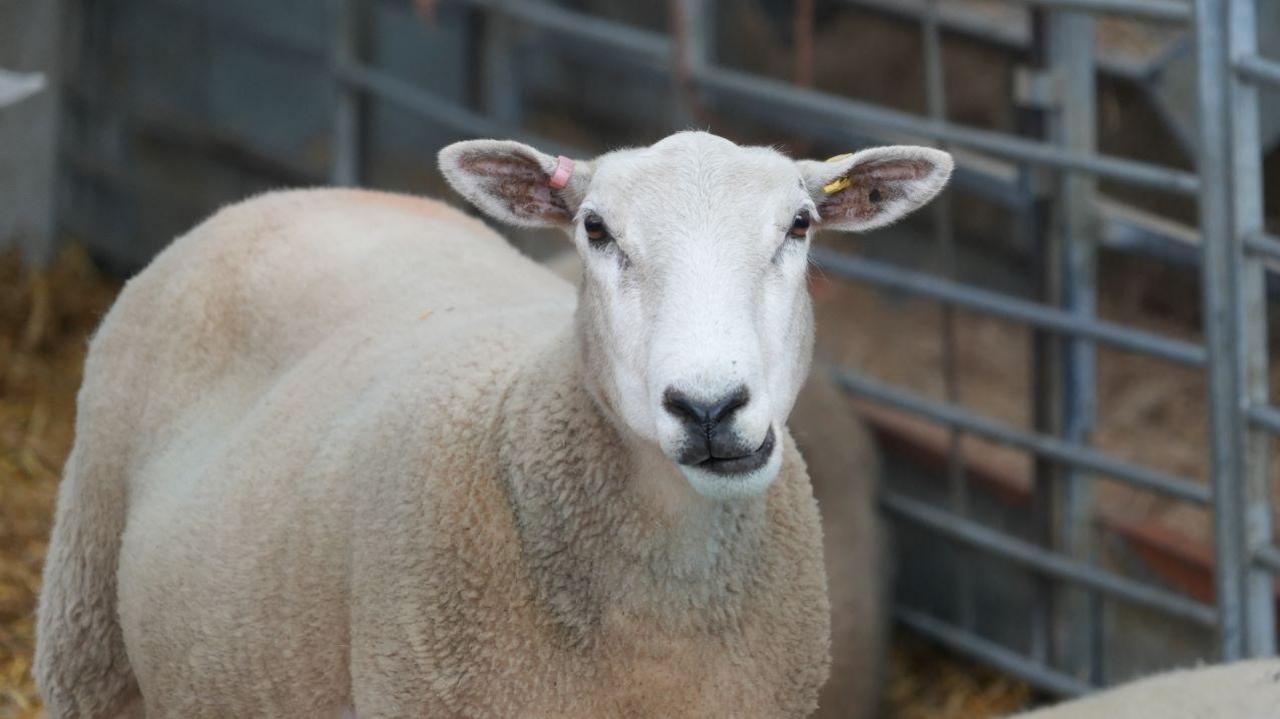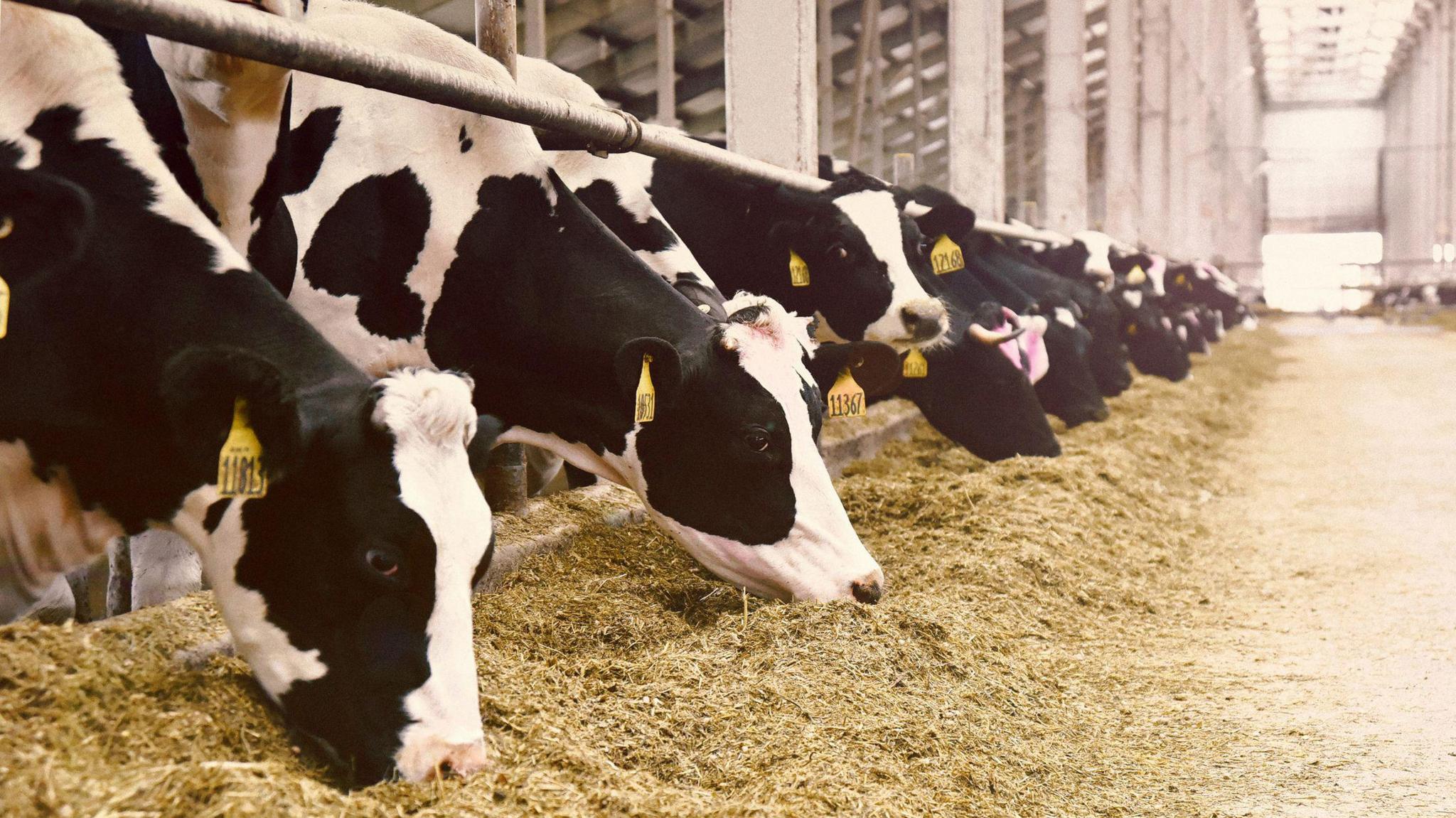Farmers urged to check livestock for deadly virus

The virus Bluetongue can affect sheep and cattle
- Published
Farmers and smallholders are being urged to stay vigilant for signs of a virus called Bluetongue.
A restriction zone has been extended to most of south Somerset by the Department for Environment, Food & Rural Affairs (DEFRA) and the Animal Health and Plant Agency, after a case was found in Dorset.
The virus mainly affects cattle and sheep, and restricts their movements.
Rob Venner, partner with Greenslade Taylor Hunt, which runs the Sedgemoor Auction Market in Bridgwater, said: "Thankfully, animals can recover, death is quite rare."
Restriction zone extension
Signs and symptoms of Bluetongue include sores, red skin, lethargy and stillbirths.
Bluetongue – or BTV-3 – can also cause infertility and breathing problems in some animals but does not affect people or food safety.
The virus is spread by midges that are often blown over from mainland Europe.
DEFRA said they identified cases of the virus in cattle in Dorset, leading to the extension of the restricted zone into south Somerset on 14 February.
"The restriction zone is a precaution to try and slow down the spread of the disease," Mr Venner said.
"There's very limited spread at the moment.
"Under law, if you see it you have to notify the local authorities."
Mr Venner added that there was no treatment but a vaccine had been developed that could become available in the UK soon.
However, the National Farmers Union warned that the vaccines only tackled symptoms of the virus rather than preventing infection.
That means movement controls on livestock and trade restrictions currently in place would still apply to vaccinated animals.
Get in touch
Tell us which stories we should cover in Somerset
Follow BBC Somerset on Facebook, external and X, external. Send your story ideas to us on email or via WhatsApp on 0800 313 4630.
Related topics
- Published4 September 2024

- Published18 September 2024
